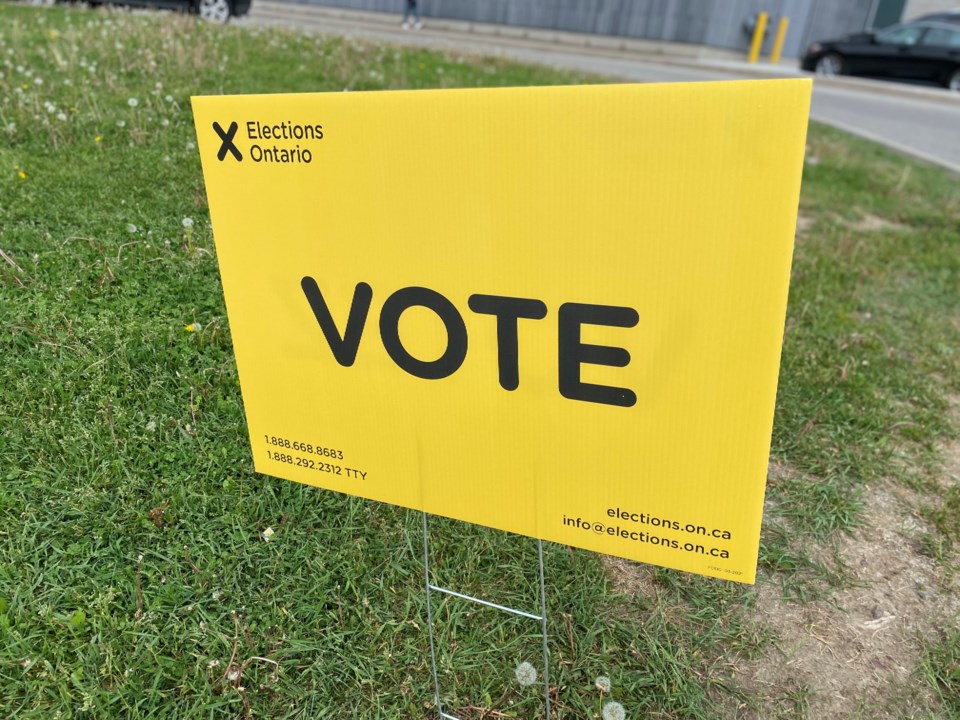This article by Pat Armstrong, York University, Canada and Marjorie Griffin Cohen, Simon Fraser University originally appeared on the Conversation and is published here with permission.
No big ideas during an election campaign? Au contraire — the Ontario election campaign produced some unexpected and innovative proposals.
This doesn’t happen often, mostly because politicians don’t dare to dream. And, as Kim Campbell infamously put it during her brief tenure as prime minister, the election period is too short a time to discuss serious issues.
Here are the good ideas we noticed during the election that should be implemented by Doug Ford’s victorious PC government and then scaled up for the rest of the country.
Education
The Ontario Liberals proposed the introduction of an optional Grade 13 for at least four years to let kids who missed out on a significant proportion of their school experience because of COVID-19 catch up. Other smart education ideas raised during the campaign:
• Reduce class sizes, with the best suggestion from the Liberals, who proposed capping classes at 20 students across the board.
• Hire lots more teachers. The promises ranged between 10,000 for the Liberals to 20,000 for the NDP, including more special education teachers.
Ontario had the worst track record in Canada on classroom closures and reliance on virtual learning during the pandemic, and Canada had one of the worst track records in the world. It’s obvious that as the pandemic subsides, we will need to help kids recover.
Housing
Affordable housing is needed everywhere and is approaching a dire crisis situation throughout the country, although no governments have plans for action in any magnitude that will help.
Most Ontario parties promised vast amounts of new housing, with the common number being at least 1.5 million homes. And while how, when and for whom these homes will be built needs lots more focus, having a promise on numbers is at least a start.
Transportation
The “buck a ride” public transit promise, also from the Liberals, is a really good idea. It deals with a whole raft of policy issues in one go.
It gives priority to public transportation at a time when gas prices are rising and people are stressed because of general price increases.
It can get more people accustomed to using public transit, which will have a positive effect on greenhouse gas emissions.
It particularly targets those who need it most. Low-wage workers often spend a lot of time on transit because housing costs are so high near their work.
The proposal would also put money in the pockets of those who need it most, especially the poorest and the vulnerable such as people with disabilities, the unemployed, students and seniors.
Public sector bargaining, labour
Somewhere along the way, constraining public sector wages to very low increases over long periods of time seemed like a good idea. Governments across the country introduced wage restraints. This resulted in devastating shortages of labour in crucial care industries.
In Ontario, Bill 124 caps some public sector wages to increases of one per cent a year, targeting jobs mainly done by women. With this kind of government directive, there’s no genuine public sector wage bargaining and it serves to increase wage inequality within the sector.
Ontario’s Bill 106 also affects women because of its limitations on pay equity bargaining in the public sector.
The good idea? All three opposition parties — the Liberals, the NDP and the Greens — promised to repeal both bills.
This would be a smart move for all of Canada. Governments across the country need to plan for labour in the care sector, but as long as strong bargaining rights are not possible because of government directives, shortages will continue.
Looking ahead to the post-pandemic era
Problems stemming from the COVID-19 pandemic are almost universal throughout the country, so progressive ideas from anywhere should be disseminated.
That’s why the surprisingly good ideas that emerged from the Ontario election campaign need to be implemented, both by the re-elected Progressive Conservatives and governments across the country.
The pandemic exposed acute deficiencies in care services and exposed and enhanced existing transit and housing problems. The smart ideas presented during the Ontario election represent a good first step to solving some of them.
It is possible to have a more equitable society as we recover from COVID-19, one that prioritizes improving the lives of citizens from all walks of life. That should be the aim of every elected official, including the newly re-elected Doug Ford.![]()
Pat Armstrong, Distinguished Research Professor of Sociology, York University, Canada and Marjorie Griffin Cohen, Professor emeritus, Simon Fraser University
This article is republished from The Conversation under a Creative Commons license. Read the original article.
